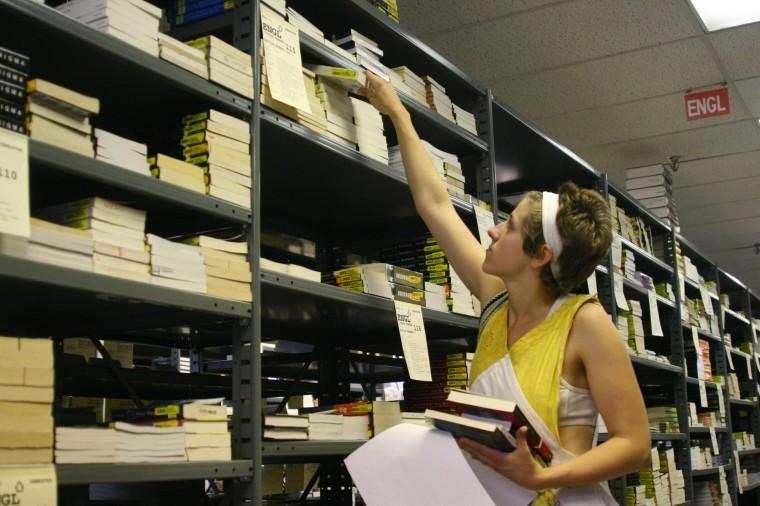Pricy textbooks staying on shelves, off students’ desks
September 5, 2011
As textbook prices rise ever higher, college students have turned to more affordable options. However, according to a survey released by the U.S. Public Interest Research Group, some students are becoming unable to buy them at all.
The survey, released in late August, found seven in 10 students have not purchased a textbook at least once if they felt it was too costly, according to The Chronicle of Higher Education.
The survey revealed several factors in why students aren’t buying their pricey required texts, including new editions of books, bundled textbooks (which include CD-ROMs), book keys for online versions, workbooks and more. Also, university exclusive editions make it almost impossible for students to find cheaper alternatives online or to rent.
“Accountancy books almost always have something attached,” said senior accountancy major Shaun Quimby. “And if they’re NIU exclusive, you have to get them at the bookstore. The teachers don’t really explain why.”
Some students can make use of other purchasing options, but feel it is easier and a safer bet to buy directly from the University Bookstore in the Holmes Student Center or Village Commons Bookstore, 901 Lucinda Ave.
“I think it’s just easier to walk in the bookstore and get what you need,” said Lisa Nieves, senior family and individual development major.
Another roadblock for students with financial aid is disbursement doesn’t take place until a few weeks into the semester. Many cannot wait the two weeks after classes to use other purchasing options such as buying online, and use the bookstores instead, Nieves said.
Also, financial aid money can only be used to buy books at the NIU bookstores.
Students can purchase up to $700 in textbooks and supplies at either of the bookstores with their OneCard, said Bursar Kinga Mauger. If students exceed $700, the remainder will be charged to their account and must be paid at a later date.
The U.S. PIRG survey also found that students had difficulty selling back certain textbooks that have a new edition coming out or are bundled with non-reusable materials.



